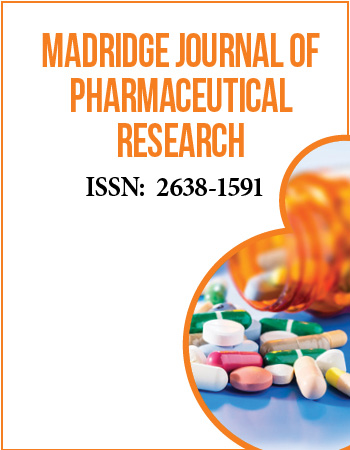2nd International Conference on Pharma & Nutrition, Health and Aging
August 1-2, 2019 Valencia, Spain
Chronic Administration of IL-17 Favours the Selective Recruitment of Inflammatory
University of the Studies of Napoli Federicoli, Italy
The late infiltration of Th17 cells in the inflamed tissues/organs of many autoimmune diseases is considered a key step towards the establishment of chronic inflammation. Indeed, the sustained and localized release of IL-17 in these tissues has been reported to exacerbate and sustain the inflammatory response although the cellular and molecular mechanisms behind these effects are far from being fully understood.
To address this question, we have investigated the effects of repetitive administration (two consecutive injections) of IL-17 into a murine air pouch as surrogate model of a pre-inflamed tissue. As expected, injection of a single dose of IL-17 into the air pouch caused a transitory influx of neutrophils that peaked at 24 hours and declined at 48 hours. Conversely, double administration of IL-17 at 0 and at 24hr caused a significant increase (almost 2-fold) in the number of infiltrated cells with inflammatory monocytes as the second main population emigrating to the pouch. This unique cellular response was matched by an equally unique biochemical profile as the comparative analysis of the inflammatory fluids obtained with a single or double injection of IL-17 showed a specific increase in IL-16 and TREM-1 levels in the latter compared to the former. All these effects were specific, as a double injection of IL-1β caused neither an increase in the recruitment of inflammatory cell recruitment to the pouch nor a shift in inflammatory cell types or a selective accumulation of IL-16 and TREM-1.
Collectively these results widen our knowledge on the inflammatory properties of IL-17 and contribute to a better understanding of the cellular and molecular mechanisms by which this cytokine contributes to the development of chronic inflammatory autoimmune diseases.
Biography:
Francesco Maione graduated in Pharmacy in 2005 from the University of Naples Federico II. During his PhD in Pharmacology (2005 to 2008) he studied the role of N-formyl-peptides (FMLF and FTM) in different models of pain and inflammation. Dr. Maione directed his efforts on this research path even further after beginning his post-doctoral training in the laboratory of Prof. Mauro Perretti and Prof. Fulvio Dʼacquisto, at William Harvey Research Institute - Queen Mary University of London (2008-2010). During this time, he expanded his knowledge on inflammation by focusing on immune-mediated inflammatory diseases and investigated the role of Annexin-1 (ANX-1) and interleukin-17A (IL-17A) in different model of inflammation. Since 2010, he joined Prof. Nicola Mascoloʼs lab where he re-activated his long-term interest in natural compound biology, starting an unexplored path in the role of natural molecules in the inflammatory response and cardiovascular system.


